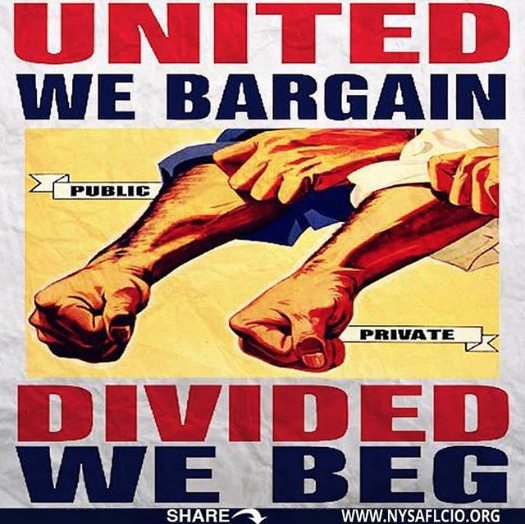
May 22, 2017; The Conversation
Last month at Yale, students went on a hunger strike to support the formation of a union, Local 33 of Unite Here, to negotiate labor agreements for graduate student-teachers. According to an article in The Conversation, an independent news source for the academic community, the students want “fair wages, mental health care insurance, better protections against gender discrimination, and other benefits that faculty enjoy.” This effort addresses the challenges of a trend in higher education towards using graduate student teachers to do the work formerly done by full-time, tenure-track professors, referred to as “casual labor.”
The organizers used a controversial labor organizing strategy called “micro-unit,” where a subset of employees “organize and negotiate on issues that impact a larger group of employees.” It is easier and less costly to organize smaller units. Nine micro-units were organized at Yale along departmental lines. As a result, only 228 put of approximately 2,600 employees voted to become unionized.
The strategy is endorsed by the National Labor Relations Board (NLRB). Pro-management organizations, such as the U.S. Chamber of Commerce, oppose the strategy.
Sign up for our free newsletters
Subscribe to NPQ's newsletters to have our top stories delivered directly to your inbox.
By signing up, you agree to our privacy policy and terms of use, and to receive messages from NPQ and our partners.
The Yale case illustrates the legal environment for private sector unions. Public universities are state government entities and as such are governed by state labor laws, while private universities like Yale are regulated by the National Labor Relations Act (NLRA) and federal law.
If Yale chooses not to negotiate with the union, it effectively challenges the legality of the micro-unit strategy and triggers an NLRA charge and federal court review. This may not bode well for the nascent Yale union, as Trump is expected to appoint three conservative lawyers to fill NLRB vacancies, constituting a Republican majority likely to overturn previous rulings. This would leave Yale students without a union. Yale critics accuse the university of waiting out negotiations “until the new appointees are in place.”
The “altered political environment” is expected to affect public sector higher education unions as well. U.S. Supreme Court Justice Samuel Alito opposes mandatory unionization and in 2012 advocated for an “opt-in” approach where government workers would have to choose to pay union dues rather than automatically being enrolled and having to choose to “opt out.” Antonin Scalia’s death stopped Alito’s attack on unions, but with newly appointed Justice Neil Gorsuch, Alito may finally get his legal defeat of public sector unions.—Cyndi Suarez













